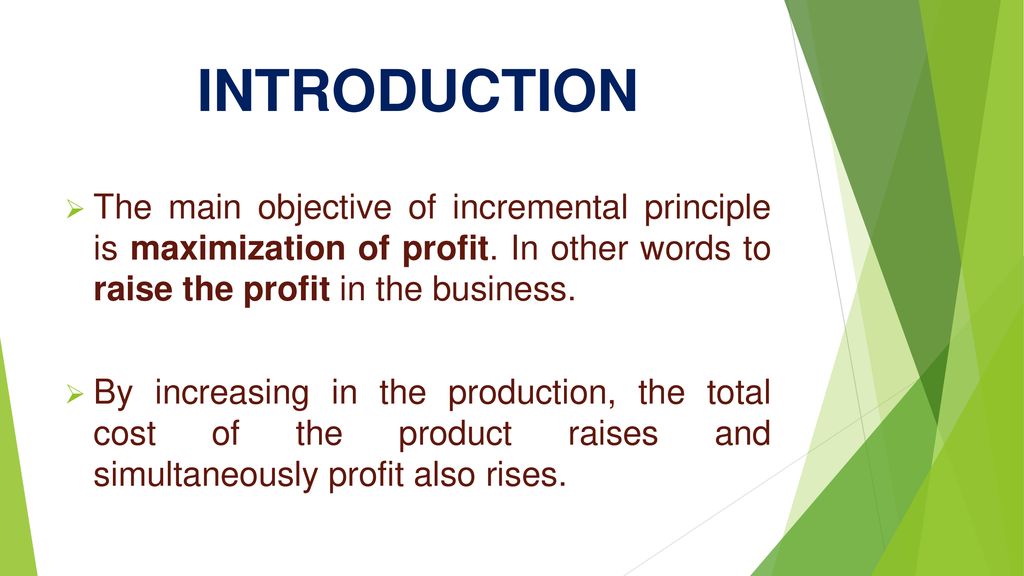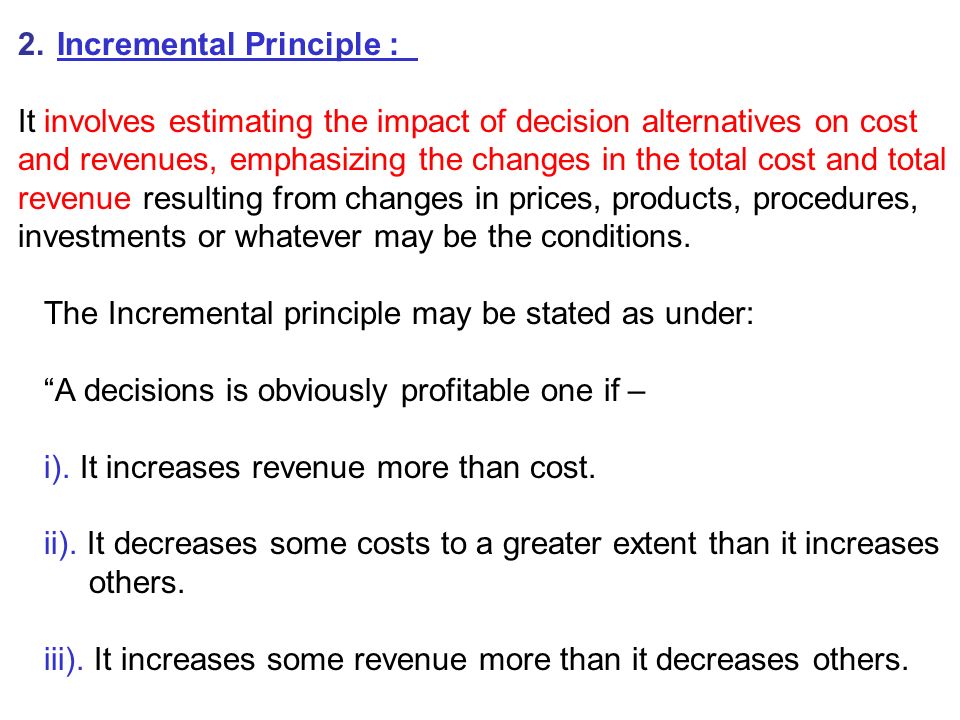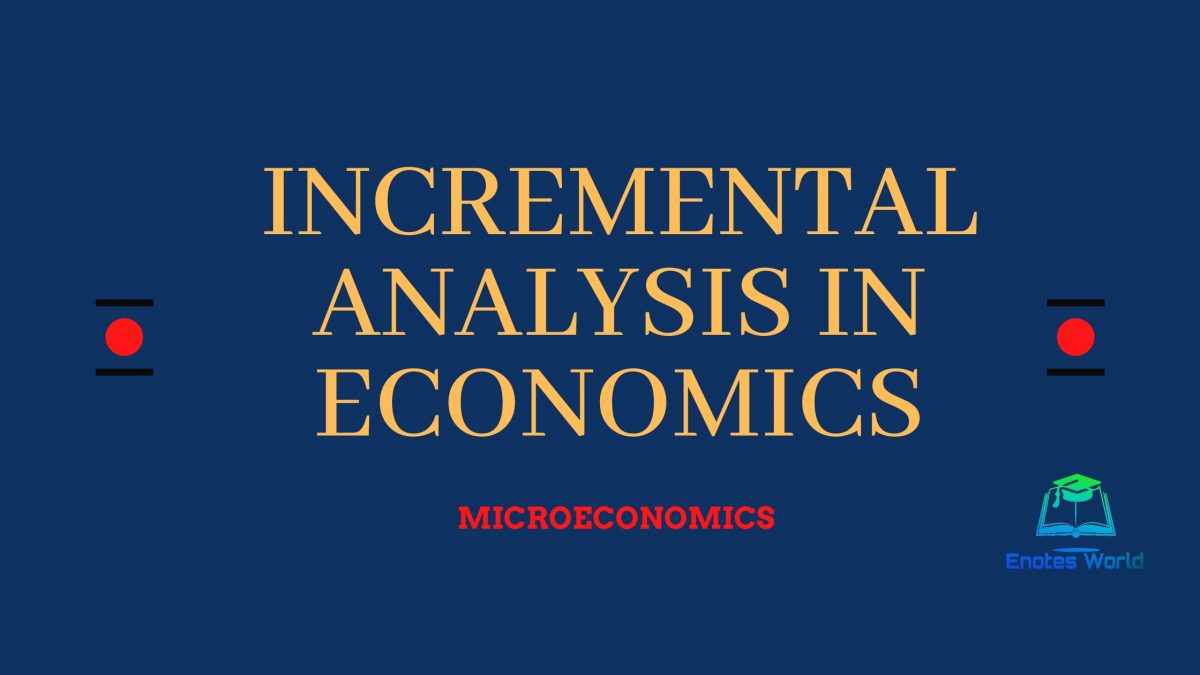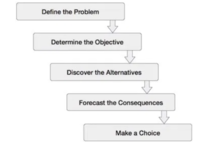In managerial economics, the concept of incremental analysis refers to the process of evaluating the costs and benefits of a specific decision or action by considering only the additional or incremental changes that result from that decision. This approach is used to make more informed and strategic business decisions by focusing on the specific changes that are expected to occur as a result of a given action, rather than considering the broader implications for the entire organization.
One of the key benefits of using incremental analysis in managerial economics is that it allows managers to make more precise and accurate assessments of the costs and benefits of a particular decision. By focusing on the specific changes that are expected to occur, managers can make more informed decisions about whether or not to pursue a particular course of action. This is particularly important when making investment decisions, as it allows managers to more accurately predict the potential returns on their investments and make more informed decisions about how to allocate resources.
In addition to helping managers make more informed decisions, incremental analysis can also help organizations to identify potential areas for cost savings or efficiency improvements. By carefully examining the costs and benefits of specific actions, managers can identify opportunities to streamline operations and reduce costs, which can ultimately lead to improved profitability.
One of the key challenges in using incremental analysis in managerial economics is determining the appropriate time frame for analyzing the costs and benefits of a particular decision. In some cases, the costs and benefits of a given action may not be fully realized until long after the decision has been made. As a result, it is important for managers to carefully consider the time frame over which they are evaluating the costs and benefits of a particular decision, as this can have a significant impact on the overall analysis.
In conclusion, the concept of incremental analysis is an important tool in managerial economics, as it allows managers to make more informed and strategic decisions by focusing on the specific changes that are expected to occur as a result of a given action. By carefully considering the costs and benefits of specific decisions, managers can make more informed investment decisions, identify opportunities for cost savings and efficiency improvements, and ultimately improve the profitability and success of their organization.
Incremental Concept Example

The micro-economic theory of the demand for labour asserts that the profit: maximising entrepreneur will continue to employ labour so long as the resulting addition to his costs is covered by the addition to his receipts from the sale of his products. This is an unproved and probably a false belief. Managerial Economics: Concept 7. In the same way, we can estimate the value of the marginal product of labour in other activities, viz. Again, it may be noted that the variability of costs is in relation to output and not to the time factor, though in the long run all costs tend to be variable. While the company is still able to make a profit on this special order, the company must consider the ramifications of operating at full capacity.
Managerial Economics jntu

The relevant cost is not the full cost but rather the incremental cost. We find its widespread use in budgeting the objective of which is to allocate resources where they are most productive. ADVERTISEMENTS: If they are regarded as excessive, management can indulge in post-mortem, just to find out the factors responsible for the excessive costs, if any, without being able to do anything for reducing them. These two are expected to give a profit of Rs. Such win-win situations are possible through negotiations.
Incremental concept /principle

If no excess capacity is present, additional expenses to consider include investment in new fixed assets, overtime labor costs, and the opportunity cost of lost sales. Here MC does not change dramatically with the changes in output. The concept of opportunity cost implies three things: i The calculation of opportunity cost involves the measurement of sacrifices. It should estimate the discounted value of the added net earnings from that machine before venturing out. After making the correct assessment of the associated incremental costs and revenues he arrives at an estimated profit of Rs. These costs become important when management is faced with the alternative of either continuing the existing plant or suspending its operations or abandoning it altogether. In fact, everything in the real commercial world is negotiable, such as housing prices and terms and conditions of payment, equipment parts, specifications, and prices.
Incremental Analysis: Definition, Types, Importance, and Example

Managerial Economics: Concept 1. Suppose, in the meantime, two other contracts, B and C, have been brought to his attention. Incremental profit is the profit gain or loss associated with a given managerial decision. The same principles applies if the firm is considering the acquisition purchase of another firm or a merger. For instance, the alternative to using business premises which one owns as offices is to rent or sell them.
Incremental Concept

Moreover, management has also to consider whether it has the necessary know-how and skill to produce and distribute the new product.                                Syllabus                C-102: MANAGERIAL ECONOMICS Unit-I: Introduction to Managerial Economics: Nature and Scope - Fundamental Concepts: Incremental Reasoning, Concept of Time Perspective, Discounting Principle, Opportunity Cost Principle, Equi - Marginal Concept,-Theory of Firm. For every business decisions there is IR and IC. These costs can merely be observed and evaluated in retrospect. The concept of opportunity cost is more important and useful to management in making a decision aWmong alternatives.






